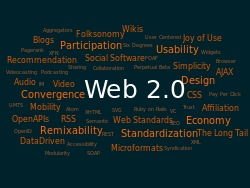A “tag” in the context of metadados[2] is a keyword or term assigned to a piece of information, such as a digital image, a blogue[4] post, or a computador[3] file. This kind of tag serves many purposes like indicating ownership, defining boundaries, and aiding in the classification of information. Tags can take various forms, including words, images, or identifying marks. They can be implemented in a top-down or bottom-up manner, and the use of both hierarchical and non-hierarchical tagging can improve information retrieval. The concept of tagging has been around even before computers, but it has gained widespread popularity with the advent of social bookmarking[1] and social networking sites. In the digital world, tags are used in a variety of applications, from organizing blog content to enhancing search capabilities in web development. Certain types of tags, such as hashtags and knowledge tags, have unique uses and benefits. However, the use of tags also comes with challenges, such as dealing with homonyms, synonyms, and inflections.
In information systems, a tag é um keyword or term assigned to a piece of information (such as an Internet bookmark, multimedia, database record, ou computer file). This kind of metadados helps describe an item and allows it to be found again by browsing or searching. Tags are generally chosen informally and personally by the item's creator or by its viewer, depending on the system, although they may also be chosen from a controlled vocabulary.

Tagging was popularized by sítios Web associated with Web 2.0 and is an important feature of many Web 2.0 services. It is now also part of other database systems, desktop applicationse sistemas operativos.